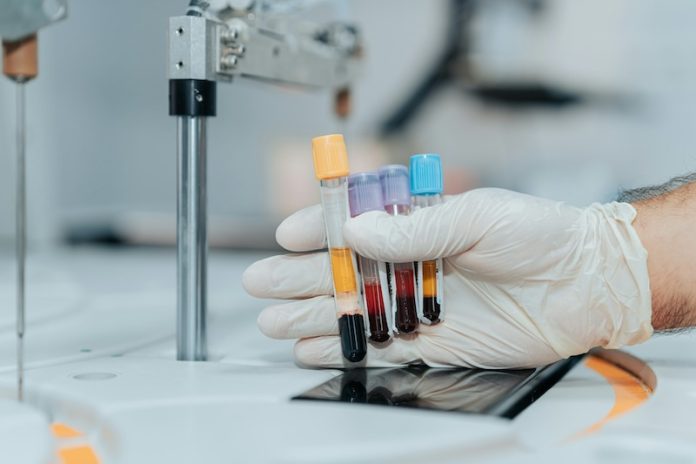
Alzheimer’s disease is a serious brain condition that slowly gets worse over time. It affects millions of people around the world, mostly older adults. The main symptoms include memory loss, confusion, and difficulty thinking clearly. These changes can deeply affect a person’s ability to live independently and stay connected with others.
Doctors know that Alzheimer’s is caused by damage in the brain. Two harmful substances—beta-amyloid plaques and tangled proteins—build up and damage brain cells. This damage leads to the loss of memory and other mental abilities.
But one of the biggest challenges in fighting Alzheimer’s is that the disease often goes unnoticed in its early stages. By the time symptoms appear, much of the damage has already been done.
Now, researchers at the University of California San Diego may have found a way to detect Alzheimer’s much earlier. In a new study, they discovered that high levels of an enzyme called PHGDH in the blood may be an early sign of the disease—even before any symptoms begin.
PHGDH is an enzyme that helps the body produce an amino acid called serine, which is important for brain function and overall health. Normally, the body controls PHGDH levels carefully.
But the researchers found that people with Alzheimer’s—especially those in early stages—had much higher levels of PHGDH in their brains. This was true even for people who didn’t yet have memory problems but later developed the disease. That means PHGDH could be an early warning signal.
To test this idea, the team studied brain tissue samples from several research groups. These samples came from people aged 50 and older, including those with Alzheimer’s, those with early brain changes but no symptoms, and healthy people.
In every group, PHGDH levels were much higher in those with Alzheimer’s. The researchers also found a clear link: the more PHGDH a person had, the worse they did on memory and thinking tests.
The team also looked at mice that were genetically designed to develop Alzheimer’s. Just like in humans, these mice had higher levels of PHGDH in their brains. The fact that the same pattern showed up in both people and animals gives scientists confidence that PHGDH is closely tied to the disease.
One surprising part of the study relates to serine supplements. Some people take serine hoping it will boost brain health. But since PHGDH makes serine, and PHGDH is already too active in people with Alzheimer’s, the researchers now worry that extra serine might actually make things worse.
Until more research is done, they advise being cautious about using serine supplements, especially for those at risk of Alzheimer’s.
This study also opens the door to a new and simple way to detect Alzheimer’s—through a blood test. If future studies confirm that high PHGDH levels show up early in the disease, doctors might be able to spot Alzheimer’s before serious symptoms begin.
That would give patients and their families more time to prepare, make lifestyle changes, or try treatments to slow the disease’s progress.
Even though there is no cure for Alzheimer’s yet, there are things people can do to lower their risk. Staying active, eating a healthy diet, and keeping the brain busy with reading, puzzles, and learning new skills can all help. Managing health problems like high blood pressure, diabetes, and high cholesterol is also important, since these conditions are closely linked to brain health.
The study was led by Dr. Sheng Zhong and published in Cell Metabolism. It’s an exciting step forward in the search for better ways to detect and treat Alzheimer’s disease.
Finding a reliable early marker like PHGDH could change the way doctors approach this illness—offering hope for earlier diagnosis, better care, and possibly even new treatments in the future.
If you care about Alzheimer’s, please read studies about Vitamin D deficiency linked to Alzheimer’s, vascular dementia, and Oral cannabis extract may help reduce Alzheimer’s symptoms.
For more information about brain health, please see recent studies about Vitamin B9 deficiency linked to higher dementia risk, and results showing flavonoid-rich foods could improve survival in Parkinson’s disease.
Copyright © 2025 Knowridge Science Report. All rights reserved.



